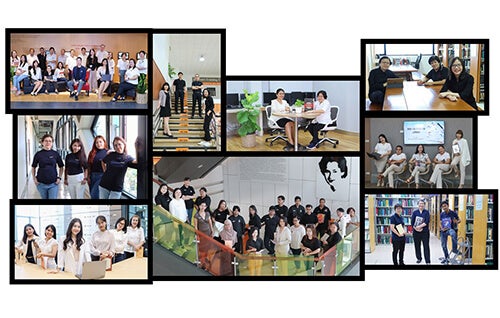
Overview
Thammasat University, a leading research university in Thailand, is known as a “university for the people” because of its commitment to creating knowledge that addresses the country’s issues and serves in the public interest. With four campuses in Tha Prachan, Rangsit, Pattaya and Lampang, Thammasat University offers degree programs in a variety of disciplines including the arts, economics, engineering, law and medicine.
To support the research activities of its more than 30,000 students and 2,000 faculty members, Thammasat University Library ― which includes nine branches and one learning center ― maintains a collection of more than 1.3 million physical books and 100,000 print journals. In addition, the library subscribes to 22 online databases including EBSCO’s Academic Search Ultimate and Applied Science and Technology Source Ultimate.
Recently, to simplify remote access to these resources and gain better usage data, the library began subscribing to OpenAthens, a single sign-on access management solution available through EBSCO.
Challenges
According to Mrs. Thitima Thienanantakul, associate director of administration and development for Thammasat University Library, seamless access to digital resources is more important than ever. This access became especially critical during the coronavirus pandemic, with many researchers conducting their studies remotely. However, the library’s previous IP authentication platform proved to be problematic in several ways.
First, users frequently had to log in multiple times to access the library’s resources, many of which link out to publisher platforms.
“Access to the library’s online assets should be simple and easy,” Mrs. Thitima said. “If users find that logging into the system is too difficult or repetitive, they will surely become frustrated.”
Second, it did not provide adequate level of security to prevent unauthorized use of the library’s resources, which can be blocked if too much content is downloaded at one time.
“When using IP authentication, the entire organization can lose access because of misuse,” Mrs. Thitima explained. “It can take time to restore access.”
Finally, IP authentication did not provide insights into which publishers and content providers were being used by students and faculty groups. This lack of data made it difficult for library leaders to prioritize spending and develop targeted marketing efforts.
“We have a variety of users,” Mrs. Thitima explained. “If we know the preferred publishers for faculty A, and the exact audiences for publisher B, then that information can help us to better manage our budget and promote the right library resources to the right audiences.”

Solutions
To address these concerns, Thammasat University Library purchased OpenAthens, a SAML-based single sign-on identity management system that offers seamless access, a personalized research experience, and greater security.
“We learned about OpenAthens for the first time five years ago,” Mrs. Thitima said. “At that time, it was totally new to the library industry in Thailand, so we decided it was not the right time for trial and error. But last year, the EBSCO Thailand team presented it to us again. This time, were impressed by its ease of use through single sign-on technology, its ability to provide the depth of usage statistics we wanted, its affordable price and trustworthy service from EBSCO Thailand team.”
Since implementing OpenAthens, librarians have simplified access to the library’s resources and become much less dependent on other departments.
“It is very nice that we can manage back-office administration by ourselves,” Mrs. Thitima said. “I am happy that our service librarian is now able to monitor usage statistics without needing support from other departments.”
Now that OpenAthens is fully implemented, library leaders plan to track which publishers and content providers are being used by which user groups. These insights into user behavior will enable the library to make more informed purchasing decisions, better promote their resources to the right audiences, and achieve the highest standard of library services.
